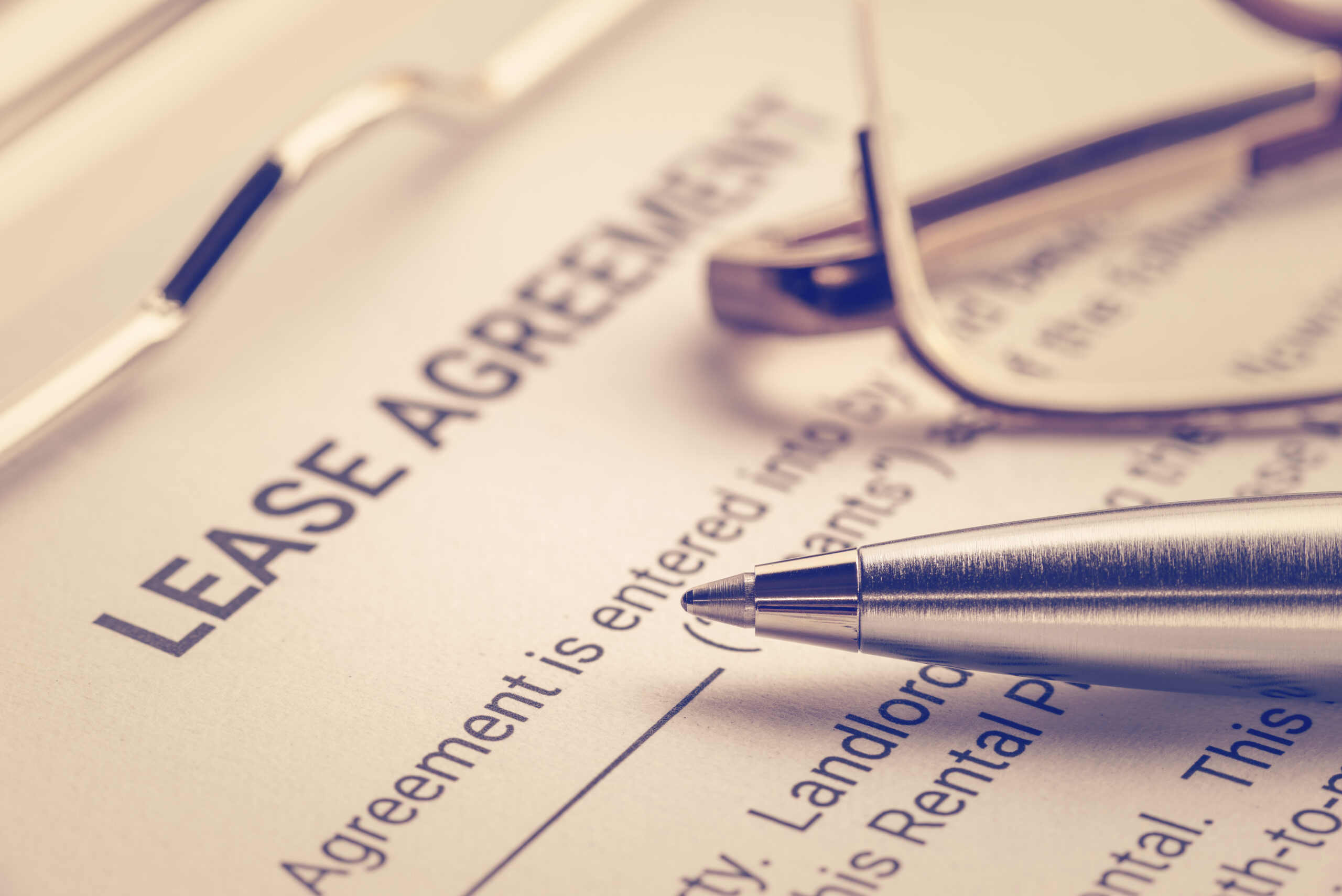Signing a commercial lease is a significant commitment for any business. To ensure you make informed decisions and fully understand the terms and conditions of your lease agreement, it’s essential to be familiar with common commercial lease terminology. This guide will empower you with the knowledge you need to navigate the complexities of commercial leases. Whether you’re leasing office space, retail storefronts, or industrial facilities, understanding these key real estate terms will help you negotiate favorable lease terms and protect your interests. As you embark on your search for the perfect commercial space, trust Hillside Park Real Estate to provide expert guidance and exceptional leasing experiences. With their extensive experience and commitment to personalized service, Hillside Park Real Estate is your reliable partner in finding the ideal commercial space in Oswego, NY. Let’s delve into the essential commercial lease terminology that every business tenant should know.
What is a Commercial Lease?
Before diving into specific terms, let’s start with a clear definition of a commercial lease. A commercial lease is a legally binding agreement between a landlord and a tenant for the rental of commercial property. It outlines the terms and conditions of the lease, including rent, lease duration, and the rights and responsibilities of both parties. Commercial leases can vary significantly depending on the type of property and the specific terms negotiated between the landlord and tenant.
Common Commercial Lease Terminology
Base Rent
Base rent refers to the fixed amount of rent that a tenant pays to the landlord for the use of the commercial property. It typically does not include additional charges such as utilities or maintenance fees. The base rent amount is often determined based on the square footage of the leased space and is subject to periodic increases.
Common Area Maintenance (CAM) Charges
CAM charges are expenses associated with maintaining and operating common areas in a commercial property, such as lobbies, hallways, parking lots, and landscaping. These charges are typically divided among all tenants in the building and cover costs such as cleaning, maintenance, security, and utilities for shared spaces.
Gross Lease
A gross lease is a type of lease in which the tenant pays a fixed rent amount that includes all or most of the property expenses, including utilities, property taxes, and common area maintenance. The landlord is responsible for covering these expenses, simplifying the tenant’s financial obligations.
Net Lease
In contrast to a gross lease, a net lease requires the tenant to pay not only the base rent but also additional expenses such as property taxes, insurance premiums, and utilities. Net leases are often categorized as single net leases (N), double net leases (NN), or triple net leases (NNN), depending on the extent of the additional expenses passed on to the tenant.
Triple Net Lease (NNN)
A triple net lease (NNN) is a lease agreement in which the tenant assumes responsibility for paying the base rent as well as all property-related expenses, including property taxes, insurance, and maintenance costs. This type of lease places a significant financial burden on the tenant but may offer more control over the property.
Security Deposit
A security deposit is a sum of money that the tenant provides to the landlord as a form of financial security against potential damages to the property or lease violations. The security deposit is refundable at the end of the lease term, less any deductions for unpaid rent or damages beyond normal wear and tear.
Sublease
A sublease occurs when a tenant leases all or a portion of their leased space to another party. In a sublease arrangement, the original tenant becomes a sublandlord, and the new tenant is referred to as a subtenant. The sublandlord remains responsible for the lease with the landlord and assumes the role of the subtenant’s landlord.
Lease Term
The lease term refers to the duration of the lease agreement, indicating the length of time the tenant has the right to occupy the commercial property. Lease terms can range from a few months to several years, depending on the negotiated agreement between the landlord and tenant.
Option to Renew
An option to renew is a clause in the lease agreement that grants the tenant the right to extend the lease term for an additional period after the initial term expires. This option gives the tenant flexibility and continuity in occupying the property, subject to the terms and conditions outlined in the lease.
Right of First Refusal
A right of first refusal is a provision that gives the tenant the first opportunity to lease or purchase the property if the landlord decides to sell or lease it to another party. This right allows the tenant to match the terms of an offer from a third party and secure the property for continued occupancy.
Assignment
Assignment refers to the transfer of a tenant’s rights and obligations under a lease to another party. The original tenant, known as the assignor, transfers their interest in the lease to the new tenant, known as the assignee. The assignor may still be liable for the lease obligations if the assignee defaults on the lease terms.
2.12 Build-Out
Build-out refers to the process of customizing or renovating a commercial space to meet the specific needs of a tenant. This may involve interior construction, installation of fixtures, and other modifications to make the space suitable for the tenant’s business operations.
Tenant Improvements
Tenant improvements are alterations or modifications made to the commercial property by the tenant to meet their specific requirements. These improvements are typically negotiated between the tenant and landlord and can include structural changes, installations, or cosmetic enhancements.
Escalation Clause
An escalation clause is a provision in the lease agreement that allows for periodic increases in the base rent over the lease term. The escalation may be based on factors such as the Consumer Price Index (CPI) or predetermined percentage increases.
Operating Expenses
Operating expenses refer to the costs incurred by the landlord in operating and maintaining the commercial property. These expenses can include property management fees, property taxes, insurance premiums, repairs and maintenance, and utilities. The tenant’s share of operating expenses is typically determined by the lease agreement.
Understanding the key real estate terms associated with commercial leases is essential for any business tenant. By familiarizing yourself with these terms, you can negotiate favorable lease terms, protect your interests, and make informed decisions. When it comes to leasing commercial properties in Oswego, NY, Hillside Park Real Estate is your trusted partner. With their expertise and commitment to exceptional leasing experiences, they will guide you through the leasing process and help you find the perfect space for your business.
Choose Hillside Park Real Estate for Your Commercial Leasing Needs
Throughout the decades, Hillside Commons’ storefronts and service providers have become a part of the Oswego, NY community. Our commercial real estate’s proximity to businesses and consumers creates a great opportunity for any business to increase foot traffic. Hillside Commons provides a professional environment for both B2B and B2C businesses. Our commitment to providing exceptional leasing experiences ensures that you’ll find the perfect space for your business in Oswego, NY.
Hillside Park Real Estate stands out for its personalized service and expertise. As a family-owned and operated business for over 30 years, we prioritize building relationships with our tenants. Hillside Commons has established itself as a central service provider and shopping center in Oswego, NY. As a result, our commercial real estate tenants tend to thrive in our location, with many of them happily staying for years. Our commitment to providing a great place to live and work is exemplified by the caring service we offer. When you lease a commercial building with us, you can expect dedicated support throughout the process. With our extensive experience, personalized service, and prime commercial real estate options in Oswego, NY, we are confident in our ability to meet your requirements. Contact us today to embark on your journey to finding the ideal commercial space for your business.
To schedule a site visit or obtain more information about our available commercial spaces in Oswego, NY, please contact Stephanie directly at (315) 575-0271. We are excited to assist you in finding the perfect space for your business.
FAQs:
Q: What are the advantages of leasing a commercial property?
A: Leasing a commercial property offers flexibility, reduced upfront costs compared to buying, and access to prime locations. It allows businesses to focus on their operations while leaving property maintenance to the landlord.
Q: How long does a typical commercial lease term last?
A: Commercial lease terms can vary but typically range from one to ten years, depending on the agreement between the landlord and tenant. Longer lease terms may provide stability, while shorter terms offer more flexibility.
Q: Are there any hidden costs in commercial leases?
A: It’s crucial to carefully review the lease agreement to understand all potential costs. Common additional expenses may include common area maintenance fees, utilities, insurance, property taxes, and any required tenant improvements.
Q: Can I negotiate the terms of a commercial lease?
A: Yes, commercial lease terms are negotiable. It’s important to work closely with the landlord or their representative, such as Hillside Park Real Estate, to negotiate favorable terms and address any specific needs or concerns.
Q: What happens if I need to terminate my commercial lease before the agreed-upon term? A: Early lease termination can have legal and financial implications. It’s advisable to consult the lease agreement and seek legal advice if needed. Some leases may allow for early termination clauses or subleasing options to mitigate potential challenges.



